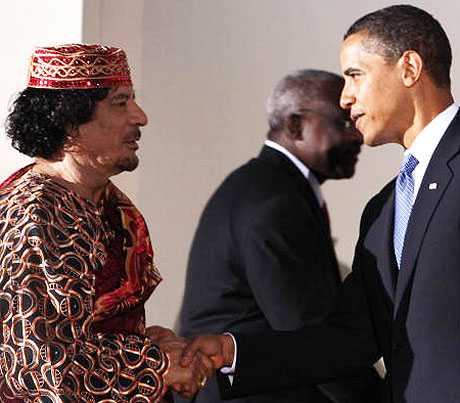OPINION: "China's Latin Economic Gambit," by Hugo Restall, Wall Street Journal, 24 August 2009.
BRIEFING: "Latin American geopolitics: The dragon in the backyard; Latin America is tilting toward China, Iran and the global "south"--and away from the United States," The Economist, 15 August 2009.
China, as the manufacturing superpower of the 21st century, naturally sees the providers of raw commodities turn in its direction politically. This was the same power we once had in abundance, but we moved upward and onward in terms of development (although the energy dependency remains strong), plus we never faced quite the same resource shortages that China has across the board (excluding coal).
As the Restall piece argues, there is virtually no ideological threat from China's involvement in Latin America. They mostly just want the stuff and their money is a wash, politically speaking (won't tame leftists, but won't create any either).
China is only 10% of the region's trade--for now. It's the rapid climb that catches the eye, along with the fact that "the main tool Beijing is deploying in the region is China Development Bank's massive pile of U.S. dollar reserves." Meanwhile, our favorite tap (Inter-American Development Bank) is largely tapped out.
Aha! The return of dollar diplomacy--simply recycled.
Let's hope China does better than the Middle East and Europe did in the 1970s and 80s. Eventually, the stockpiling of commodities while they're cheap will come to a close, and that drop-off, combined with the ever-present danger of overcapacity in China, may well put Latin America on yet another tumultuous ride.
The hope?
For all the talk of budding South-South relations, the reality is that developing economies directly compete with each other because their comparative advantages are similar. The U.S. may ultimately be able to play the other two sides against each other in this triangular relationship because its own economy is complimentary with both.
The U.S. may yet be able to bind the region together by offering Latin America greater access to its markets and giving its neighbors a leg up in competition with China. After the failure of the Free Trade Area of the Americas negotiations in 2005, the only way forward for opening markets was much more limited agreements.
But as China's footprint expands in the Americas, it may concentrate minds and bring the negotiators back to the table. That would be a win-win outcome for the whole hemisphere.
As for the Economist piece and the suggestion that the Monroe Doctrine is dead, that analysis both misinterprets the Doctrine and the current state of affairs. An "open door" swings open for everybody, whereas the doctrine was about military domination and associated attempts at economic extortion (Roosevelt Corollary).
And please remember we're still far bigger traders and investors in the region than China or anybody else.
But no doubt we're seeing a realization on our side that we've long ignored the region, especially with the "war on terror."
China's role in the region (besides wiping out low-end manufacturing with its own economy) is not that deep and mostly centered on extractive industries. India, meanwhile, invests more in technology (software, pharma) and not just in resources.
Yes, China may well free Chavez of his uncomfortable dependence on the U.S. market, but it's fueling fears in the region that China's primary impact, in combo with stifling manufacturing, is "causing the region to respecialize in commodities"--a decidedly 19th-century outcome. And no, China has zero interest in "peoples' liberation"--just the opposite, so don't expect the PLA to show up in numbers, except to sign contracts.
As for Russia, it's only interested in selling arms--for money and not for outcomes.
Only Iran can be said to have any serious ideological ambitions, reflecting the stupidity of its economic relationships with the outside world.
Can we complain about this outcome? Hardly. If we wanted better relations with the region, we could have them. But we chose a drug war and economic stinginess whenever things get tough. So we definitely could use some competition.
 Thursday, September 17, 2009 at 10:29AM
Thursday, September 17, 2009 at 10:29AM 










